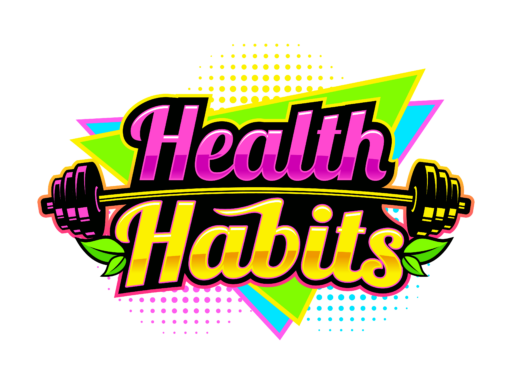Preface: This article starts a new series on various popular ingredients in nootropics. Nootropics have become a hot topic recently, and as a class of ingredients, they’re relatively new. The term was only coined in the 60s with specific criteria attached, but the definition has since expanded (mostly as a marketing/branding term) to any substance which reportedly improves cognitive function. First up, let’s talk about one of the most popular and well-researched nootropic ingredients: modafinil.
If you consider any ingredient that improves brain function a nootropic, then you’ll quickly enter wide-ranging territory. Caffeine, for example, easily fits itself into that land, as does an ingredient like modafinil. Think of modafinil like a better caffeine. I can’t believe no modafinil companies have branded it as that, because that’s smart, if I do say so myself.
Wakefulness and Alertness for Acute Sleep Deprivation
With this in mind, historically modafinil’s primary use has been in those suffering from acute sleep deprivation. In fact, its original prescription use was for those with narcolepsy One study found that a standard dose of modafinil, 200mg, had the same wakefulness effect of 600mg caffeine (about 5.5 cups of coffee) without the jitters and other side effects that come from pounding that much coffee. Like I said, it’s a better, although more expensive, caffeine.
In that sense, modafinil is often a better solution to functioning with acute sleep deprivation. If you didn’t sleep much the night before but need to function effectively, going for modafinil can be the less jittery, smoother solution than a million cups of coffee.
Now I have to say this, because otherwise some people will take this to mean they can sleep less consistently and get by with modafinil. That’s a terrible idea. Good sleep habits will always be the foundation. If your norm is to sleep well, but life gets in the way sometimes and you need a pick-me-up, that’s when modafinil can make sense. NOT all the time.
Independent of Sleep Deprivation, It’s Slightly Effective
Fortunately, modafinil has a lot of quality research behind it. So we do have a good grasp of its risks. While it clearly can be used to combat acute sleep deprivation, that’s not usually why people grab for nootropics.
We want to know whether it can help us when we’re already at our best. When chess world champion Magnus Carlsen was asked in a press conference what his thoughts on smart drugs were, he said, in the most politically correct way possible, that they’re worth exploring. Anything that can help a champion improve upon an already high peak is at least worth considering.
Now, modafinil won’t work for him because of the regulations in his sport, but for the rest of us trying to perform better at work it is on the table for us to do our best.
What Does the Research Say?
A systematic review of 19 placebo controlled studies indicated “only limited potential for modafinil to act as a cognitive enhancer outside sleep-deprived populations.” This is a double-edged conclusion that takes a careful read of the study to understand. On the positive side, you could say that there was a controlled, repeated improvement in cognition using modafinil.
But the benefit is very modest. If you’re hoping that modafinil will give you drastically better memory of cognitive performance, that’s just not the case (unless you’re sleep-deprived.) If that has been your experience, then don’t forget to underestimate the power of a placebo.
That said, most people using nootropics for peak performance are okay with only slight improvements. They’re the type, like Magnus Carlsen, seeking one percent edges, which means that however modest the effect, it’s worth investing in.

Risks and Downsides of Using Modafinil
The decision to use modafinil, just like almost any other drug or supplement, is not a risk-free panacea. As is common among substances, there’s potential for abuse, especially if you take higher than the recommended dose (100mg-200mg). This is especially true with modafinil, because it acts on the dopamine receptors similar to drugs like cocaine and amphetamines. If you’ve ever used modafinil, you may be familiar with the mild euphoria.
In the case of caffeine, this is less problematic (although still potentially a negative), but modafinil can have many side effects from both frequent use, and acute high-dose use, like nausea, headaches, nervousness, insomnia, and more. Modafinil withdrawal can be even worse, with reports of fatigue, declined cognitive abilities, and even depression.
None of this is surprising but it does lead us to the recommendation that modafinil should be used in moderation and you should pick your spots.
Figure out the times when you might need that boost the most, and save it for that. Or, only use it for its most prominent and effective use: to ward off acute sleep deprivation.
Modafinil and Brain Plasticity
If you’re under 25, you should pause a little bit more if you decide to take modafinil or any nootropic, really. That’s because the frontal lobe of your brain is still developing. For healthy, developing brains, nootropics like modafinil can decrease neuroplasticity. In other words, as you get older it will be harder to become smarter.
How to Get Modafinil
In the US, modafinil is prescription only. We could debate whether it should be available over the counter or not, but it’s pointless to do so.
If you’d like to try modafinil, then talk to your doctor about what you think it can do for you.

2 Pingbacks